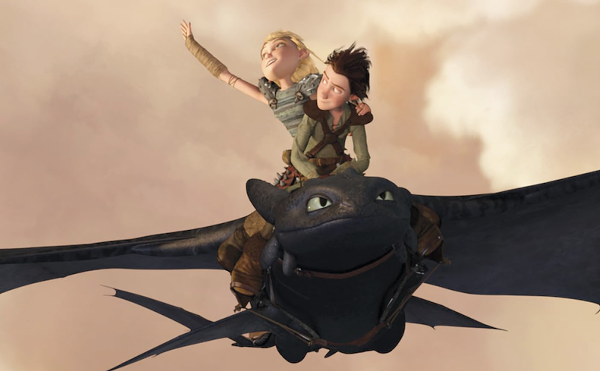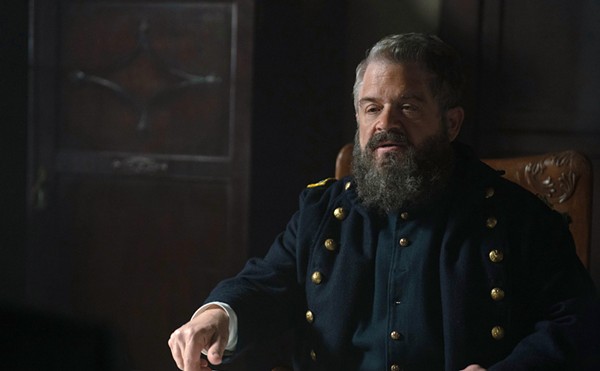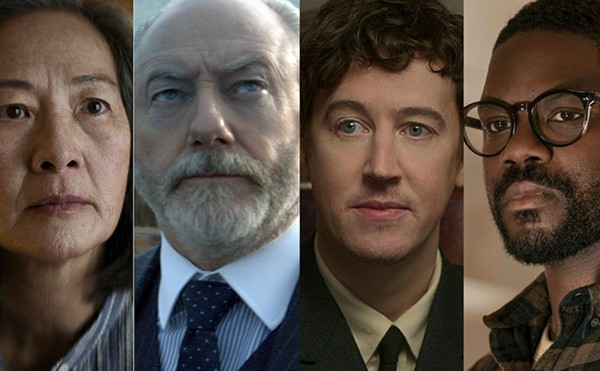Culture, more than biology, according to Margaret
Mead's Coming of Age in Samoa,
directs the perilous passage from girlhood to womanhood. Cultures have peculiar
ways of initiating their adolescents into the community of adults. Apache girls
paint their bodies and participate in a sunrise ceremony of prayer, dance, and
instruction. In parts of Africa, maturation is marked by clitorectomy. The
American aristocracy draws fresh blue blood from the powdered pores of its
debutantes. And throughout Latin America, la quinceañera subjects 15-year-olds
to the ordeal of a gala in their honor.
Quinceañera begins
with one such festivity. Dressed in an expensive white gown, a beaming teenager
and her entourage arrive in a Hummer limo. The parents, an upwardly mobile
couple, radiate joy in their lovely daughter and pride in their own ability to
host a copious feast. Will the film proceed as urban ethnography, or else, like
the bar-mitzvah burlesque Keeping Up with
the Steins, as a send-up of an adolescent's confirmation transformed
into social ostentation? Neither, it turns out. When Carlos (Garcia), the
birthday girl's ne'er-do-well brother, shows up at the party, his father slugs
him and throws him out into the street. And Magdalena (Rios), a cousin whose
own quinceañera is just a few months away, turns out to be pregnant. Though
Magdalena insists she is still a virgin, her father, a cop and a part-time
preacher, is not convinced. A bit of Mary Magdalene as well as the Virgin Mary,
Magdalena finds herself a fallen woman even before her formal induction into
Latina womanhood. She takes refuge with great-great Tio Tomás (Gonzalez), a
wise and gentle octogenarian. Cousin Carlos is already part of the odd ménage.
Delivering a eulogy for one of the characters in Quinceañera, the speaker can think of no
higher praise than that "he loved everyone and judged no one." No one but a
saint or an artist could be summed up accurately that way. What sets this
Latina coming-of-age story apart is the empathy that its two directors, Richard
Glatzer and Wash Westmoreland, obviously feel for all their characters, even
the screw-ups. The ritualized initiation of a 15-year-old into the community of
Mexican-American adults could easily have degenerated into sentimentality or stereotype.
But the filmmakers' respect for their subject is nowhere more apparent than in
the figure of Carlos, a tattooed dropout who cannot even keep his dead-end job
washing cars. Groping to understand his own sexuality and his obligations to
others, Carlos proves to be a scapegrace who has not exhausted the deep
reserves of grace.
Echo Park, the neighborhood in Los Angeles that is the
setting for the story, is being gentrified by affluent newcomers even as its
working-class Latinos cling to customs such as quinceañeras. The Southern
California Mexicanos switch codes freely, moving between English and Spanish
between and within sentences. Immersing us in the rich particulars of a time
and place, this film offers its viewers a privilege, the right of safe passage
between languages, cultures, sexual orientations, childhood and adulthood, life
and death.
Tags:

KEEP SA CURRENT!
Since 1986, the SA Current has served as the free, independent voice of San Antonio, and we want to keep it that way.
Becoming an SA Current Supporter for as little as $5 a month allows us to continue offering readers access to our coverage of local news, food, nightlife, events, and culture with no paywalls.
Scroll to read more Movie Reviews & News articles
Newsletters
Join SA Current Newsletters
Subscribe now to get the latest news delivered right to your inbox.














